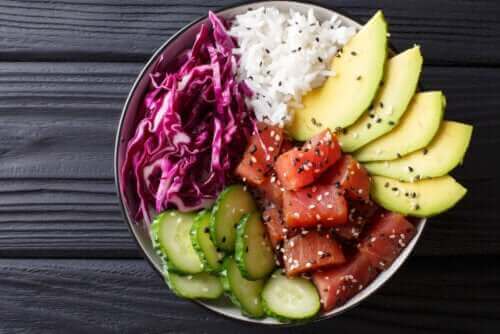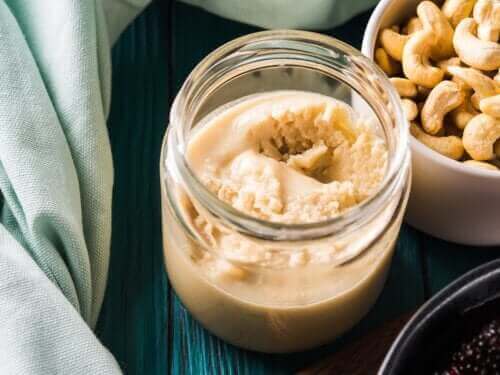驅蚊植物–11種天然防蚊妙方
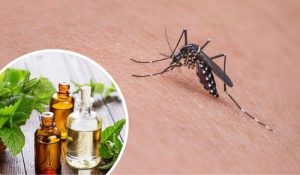
蚊子是一種以血液為營養來源的小型昆蟲。他們藉此傳播瘧疾、登革熱和黃熱病等嚴重疾病,對我們造成威脅。
蚊子的叮咬會造成小腫包、產生過敏反應,並持續數小時,造成我們的不適。
蚊子通常在靜止水域等衛生不佳的環境中孳生,有時僅僅在住家附近。
基於這些原因,我們應進一步改善衛生,並妥善使用防蚊工具,讓這些惱人的害蟲–遠離我們的居所。
使用一般防蚊液是普遍驅除蚊蟲的方法,然而我們並不建議使用它,因為其含有可能危害環境和健康的化學物質。
好消息是,以下幾種天然方法,不但可以驅除蚊子,其中一些還能為屋內帶來芬芳。
想知道更多嗎 ?
1. 大蒜驅蚊
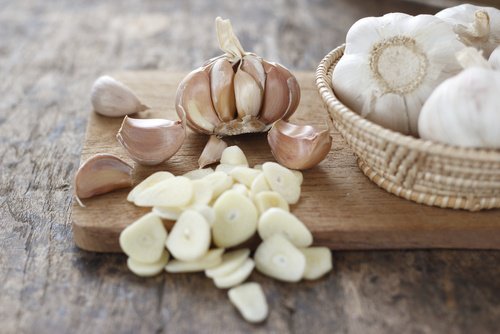
大蒜的強烈氣味–來自其本身含有的硫化物成份。用它驅除蚊子不失為一個好法子,能有效讓蚊子遠離屋內。
使用方法
- 搗碎一瓣生大蒜,放在昆蟲常進入之區域,及周遭。
2. 肉桂驅蚊
這種香料的香味極佳,然蚊蟲卻很討厭它。
使用方法
- 在一容器中加滿熱水,添加些許肉桂粉,將容器放在客廳等。
想知道更多?請閱讀:肉桂和檸檬:絕妙新療法
3. 羅勒葉驅蚊

羅勒葉放置在靠近門窗的位置,能防止蚊蟲進入。
羅勒的氣味對蚊蟲來說相當刺激,會使牠們遠離。
使用方法
- 可在門口或屋子各角落放置羅勒盆栽。
- 您也可以取乾的羅勒葉放在屋內,以驅趕蚊蟲。
4. 百里香驅蚊
百里香的種子可用來驅趕屋內、庭院中的蚊蟲。
使用方法
- 將百里香種子數個加以燃燒,讓香味充斥屋內。
5. 薄荷驅蚊

有著耳目一新的香味,用薄荷植物驅趕小昆蟲也相當有效。鑑於此,用薄荷盆栽或乾葉來保護我們免受叮咬、以及防止住家附近蚊蟲出沒。
使用方法
- 可在庭院裡種植薄荷,同時可放置薄荷盆栽於廚房內。
- 若是在較小的空間(如臥房),可置放乾燥薄荷葉來驅蚊。
6. 丁香驅蚊
丁香燃燒後會產生薰香,是既天然又有效的驅蚊法寶。
使用方法
- 將些許丁香放在一小盤子中,焚燒之,讓它釋放濃郁香氣。
- 用幾根繩子將數個丁香植株綁起,放在前門等出入口。
7. 迷迭香驅蚊
數世紀以來,人類使用迷迭香的葉子或其萃取精油作為天然藥物。它不僅可以改善身體健康狀況,還可以用於居家用途。
使用方法
- 保護家人免受蚊蟲叮咬,在屋內噴灑稀釋後之迷迭香精油。
- 燃燒幾片迷迭香乾葉,或沖泡葉子成濃縮茶液後放置。
8. 香茅葉驅蚊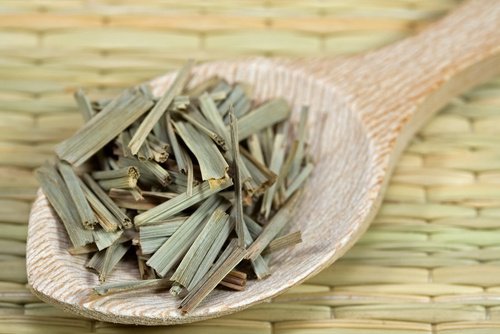
此植物因有檸檬般的香味而聞名,大多數昆蟲不喜歡其味道。
使用方法
- 在欲驅蚊之房間內的各角落放些許香茅枝葉。
- 你也可以將香茅加熱水泡成香茅茶液,它的氣味能散發到屋內各個區域。
9. 黑胡椒驅蚊
黑胡椒帶有強烈、辛辣氣味,用上它,蚊子絕不想進入你家。
使用方法
- 將黑胡椒磨碎成胡椒粉,放置在房間各個角落。
10. 尤加利葉驅蚊
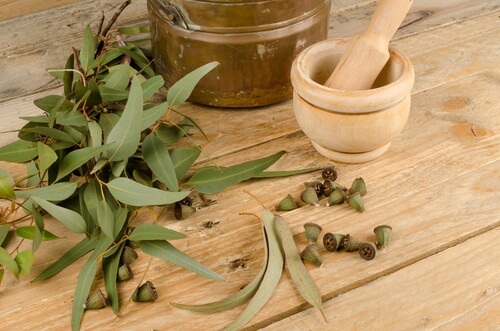
尤加利葉(或稱桉樹葉)的氣味能有效驅除蚊子或其它惱人蚊蟲。
使用方法
- 燃燒數片尤加利葉,讓薰香充斥屋內。
- 也可試試將尤加利葉放在小鍋子(醬汁鍋)裡水煮,其蒸氣可以驅除臨海住家的蚊蟲,免受侵擾。
別忘記閱讀:8 種維克斯傷風膏 VapoRub 的用藥秘訣
11. 月桂葉驅蚊
對我們來說,月桂葉有著溫及宜人的香氣,蚊子等昆蟲卻很討厭它。我們能好好利用其驅蟲能力,可試試以下方法。
使用方法
- 將數片月桂葉搗碎或切碎,撒在蚊蟲易聚集的地方。
現在,你認識到這些便利的驅蟲妙方,下次發現蚊蟲侵入屋內,別猶豫,拿出這些秘密武器對付牠們吧。
蚊子是一種以血液為營養來源的小型昆蟲。他們藉此傳播瘧疾、登革熱和黃熱病等嚴重疾病,對我們造成威脅。
蚊子的叮咬會造成小腫包、產生過敏反應,並持續數小時,造成我們的不適。
蚊子通常在靜止水域等衛生不佳的環境中孳生,有時僅僅在住家附近。
基於這些原因,我們應進一步改善衛生,並妥善使用防蚊工具,讓這些惱人的害蟲–遠離我們的居所。
使用一般防蚊液是普遍驅除蚊蟲的方法,然而我們並不建議使用它,因為其含有可能危害環境和健康的化學物質。
好消息是,以下幾種天然方法,不但可以驅除蚊子,其中一些還能為屋內帶來芬芳。
想知道更多嗎 ?
1. 大蒜驅蚊

大蒜的強烈氣味–來自其本身含有的硫化物成份。用它驅除蚊子不失為一個好法子,能有效讓蚊子遠離屋內。
使用方法
- 搗碎一瓣生大蒜,放在昆蟲常進入之區域,及周遭。
2. 肉桂驅蚊
這種香料的香味極佳,然蚊蟲卻很討厭它。
使用方法
- 在一容器中加滿熱水,添加些許肉桂粉,將容器放在客廳等。
想知道更多?請閱讀:肉桂和檸檬:絕妙新療法
3. 羅勒葉驅蚊

羅勒葉放置在靠近門窗的位置,能防止蚊蟲進入。
羅勒的氣味對蚊蟲來說相當刺激,會使牠們遠離。
使用方法
- 可在門口或屋子各角落放置羅勒盆栽。
- 您也可以取乾的羅勒葉放在屋內,以驅趕蚊蟲。
4. 百里香驅蚊
百里香的種子可用來驅趕屋內、庭院中的蚊蟲。
使用方法
- 將百里香種子數個加以燃燒,讓香味充斥屋內。
5. 薄荷驅蚊

有著耳目一新的香味,用薄荷植物驅趕小昆蟲也相當有效。鑑於此,用薄荷盆栽或乾葉來保護我們免受叮咬、以及防止住家附近蚊蟲出沒。
使用方法
- 可在庭院裡種植薄荷,同時可放置薄荷盆栽於廚房內。
- 若是在較小的空間(如臥房),可置放乾燥薄荷葉來驅蚊。
6. 丁香驅蚊
丁香燃燒後會產生薰香,是既天然又有效的驅蚊法寶。
使用方法
- 將些許丁香放在一小盤子中,焚燒之,讓它釋放濃郁香氣。
- 用幾根繩子將數個丁香植株綁起,放在前門等出入口。
7. 迷迭香驅蚊
數世紀以來,人類使用迷迭香的葉子或其萃取精油作為天然藥物。它不僅可以改善身體健康狀況,還可以用於居家用途。
使用方法
- 保護家人免受蚊蟲叮咬,在屋內噴灑稀釋後之迷迭香精油。
- 燃燒幾片迷迭香乾葉,或沖泡葉子成濃縮茶液後放置。
8. 香茅葉驅蚊
此植物因有檸檬般的香味而聞名,大多數昆蟲不喜歡其味道。
使用方法
- 在欲驅蚊之房間內的各角落放些許香茅枝葉。
- 你也可以將香茅加熱水泡成香茅茶液,它的氣味能散發到屋內各個區域。
9. 黑胡椒驅蚊
黑胡椒帶有強烈、辛辣氣味,用上它,蚊子絕不想進入你家。
使用方法
- 將黑胡椒磨碎成胡椒粉,放置在房間各個角落。
10. 尤加利葉驅蚊

尤加利葉(或稱桉樹葉)的氣味能有效驅除蚊子或其它惱人蚊蟲。
使用方法
- 燃燒數片尤加利葉,讓薰香充斥屋內。
- 也可試試將尤加利葉放在小鍋子(醬汁鍋)裡水煮,其蒸氣可以驅除臨海住家的蚊蟲,免受侵擾。
別忘記閱讀:8 種維克斯傷風膏 VapoRub 的用藥秘訣
11. 月桂葉驅蚊
對我們來說,月桂葉有著溫及宜人的香氣,蚊子等昆蟲卻很討厭它。我們能好好利用其驅蟲能力,可試試以下方法。
使用方法
- 將數片月桂葉搗碎或切碎,撒在蚊蟲易聚集的地方。
現在,你認識到這些便利的驅蟲妙方,下次發現蚊蟲侵入屋內,別猶豫,拿出這些秘密武器對付牠們吧。
- Stjernberg, Louise & Berglund, Johan. (2000). Garlic as an Insect Repellent. JAMA : the journal of the American Medical Association. 284. 831. 10.1001/jama.284.7.831.
- Med Vet Entomol. 2005 Mar;19(1):84-9. A double-blinded, placebo-controlled trial of garlic as a mosquito repellant: a preliminary study. https://www.ncbi.nlm.nih.gov/pubmed/15752181
- Parasites & Vectors. (2017). Evaluation of active ingredients and larvicidal activity of clove and cinnamon essential oils against Anopheles gambiae (sensu lato). https://link.springer.com/article/10.1186/s13071-017-2355-6
- Malaria Journal. (2011). Natural products for the control of malaria. https://malariajournal.biomedcentral.com/articles/supplements/volume-10-supplement-1
- J Am Mosq Control Assoc. 2002 Dec;18(4):348-51. Repellent activities of essential oils and monoterpenes against Culex pipiens pallens. https://www.ncbi.nlm.nih.gov/pubmed/12542193
- Begum, Sabira & Sara, Sara & Ayub, Anjum & Tariq, Rajput & Siddiqui, Bina. (2014). Mosquito Repellent Activity and Toxicity of Flower Buds (Cloves) of Syzygium aromaticum Linn.. 10.13140/RG.2.1.5003.0964.
- Malar J. 2019; 18: 436. Published online 2019 Dec 21. Effectiveness of plant-based repellents against different Anopheles species: a systematic review. doi: 10.1186/s12936-019-3064-8
- Parasit Vectors. 2016; 9: 238. Published online 2016 Apr 26. The larvicidal effects of black pepper (Piper nigrum L.) and piperine against insecticide resistant and susceptible strains of Anopheles malaria vector mosquitoes. doi: 10.1186/s13071-016-1521-6
- Centers for Disease Control and Prevention (CDC). Mosquitoes, Ticks & Other Arthropods. https://wwwnc.cdc.gov/travel/yellowbook/2020/noninfectious-health-risks/mosquitoes-ticks-and-other-arthropods
- Rani, Nandini & Wany, Aakanksha & Vidyarthi, Ambarish & Pandey, D M. (2013). Study of Citronella leaf based herbal mosquito repellents using natural binders. Current Research in Microbiology and Biotechnology. 1. 98-103.
此文本僅供資訊目的使用,並不取代與專業人士的諮詢。如有疑問,請諮詢您的專家。
